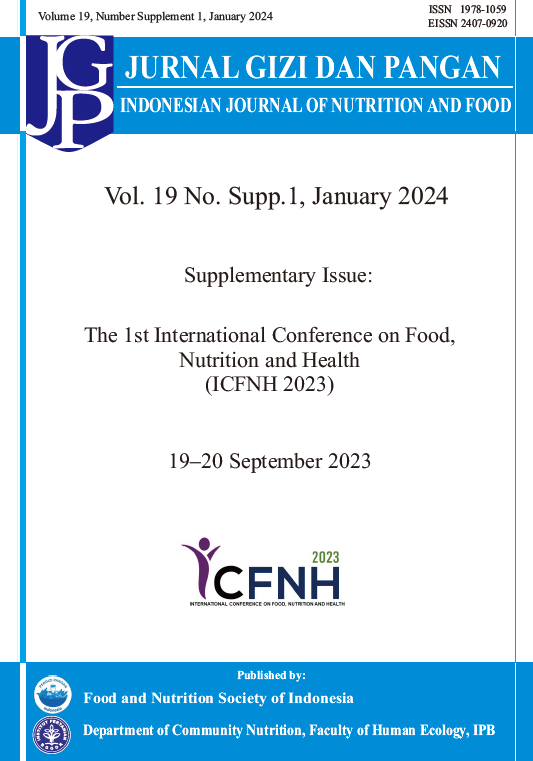The Food Insecurity Issues in Gastronomy Tourism among Local and International Tourists in Malaysia
Abstract
The objectives of this study are to investigate the food security issues arising in gastronomic tourism, to verify the food insecurity experiences encountered by tourists, and to determine the tourists’ dining satisfaction from the gastronomic tourism experiences in Malaysia. A quantitative approach was selected for this study. These issues were concluded from the data collection via questionnaire forms disseminated online through multiple social media platforms consisting of 250 participants of both local and international tourists visiting Malaysia. The Independent T-test and Mann-Whitney test were used as the main statistical test to establish if any tourist groups had food security-related issues during their visit. The results showed that local tourists are more likely to be affected by food security issues, food insecurity, and dining experiences. Overall, this study discovered that both local and international tourists have contrasting experiences in gastronomy tourism in Malaysia.
References
Ahmed F, Siwar C. 2013. Food security status, issues and challenges in Malaysia: A review. J Food Agric Environ 11(2):219‒223.
Borge M. 2023. The evaluation of modular manufacturing in controlled environment agriculture for repurposed urban spaces [Dissertation]. West Lafayette (USA): Purdue University.
Gani AA, Mahdzar M, Mohamad R, Abdullah N, Awang KW. 2017. December. Linking Image and Satisfaction of Food Tourism in Penang, Malaysia. In E-Proceeding of the 6th International Conference on Social Sciences Research 2017 (page 44‒58), 4th December 2017. Kuala Lumpur (KL): Melia.
Hall CM, Mitchell R. 2001. Wine and Food Tourism. In Douglas N, Derrett R (Eds.) Special Interest Tourism: Context and Cases. Sydney (AU): Wiley.
Hashim MS, Isa AM, Menon AS, Nazari NM. 2019. The effect of tourism towards the food security issues to the urban poor in Sarawak, Malaysia: A conceptual approach. International Journal of Financial Research 10(5):241‒249. https://doi.org/10.5430/ijfr.v10n5p241
Jalaluddin NSM, Nor ARM, Mokhtar N, Abd Aziz N. 2022. Kesan pandemik covid-19 terhadap sekuriti makanan di Malaysia: The impact of covid-19 pandemic on Malaysia food security. Int J Interdiscip Cult Stud 3(5):294‒315. https://doi.org/10.47548/ijistra.2022.59
Leong QL, Ab Karim S, Awang KW, Abu Bakar AZ. 2017. An integrated structural model of gastronomy tourists’ behaviour. Int J Cult Tour Hosp Res 11(4):573‒592. https://doi.org/10.1108/IJCTHR-05-2016-0047
Mora D, Solano-Sanchez MA, Lopez-Guzman T, Moral-Cuadra S. 2021. Gastronomic experiences as a key element in the development of a tourist destination. Int J Gastron Food Sci. 25(3):100405. https://.doi.org/10.1016/j.ijgfs.2021.100405
Rimmington M, Yüksel A. 1998. Tourist satisfaction and food service experience: Results and implications of an empirical investigation. Anatolia 9(1):37‒57. https://doi.org/10.1080/13032917.1998.9686958
Authors

This work is licensed under a Creative Commons Attribution-ShareAlike 4.0 International License.





